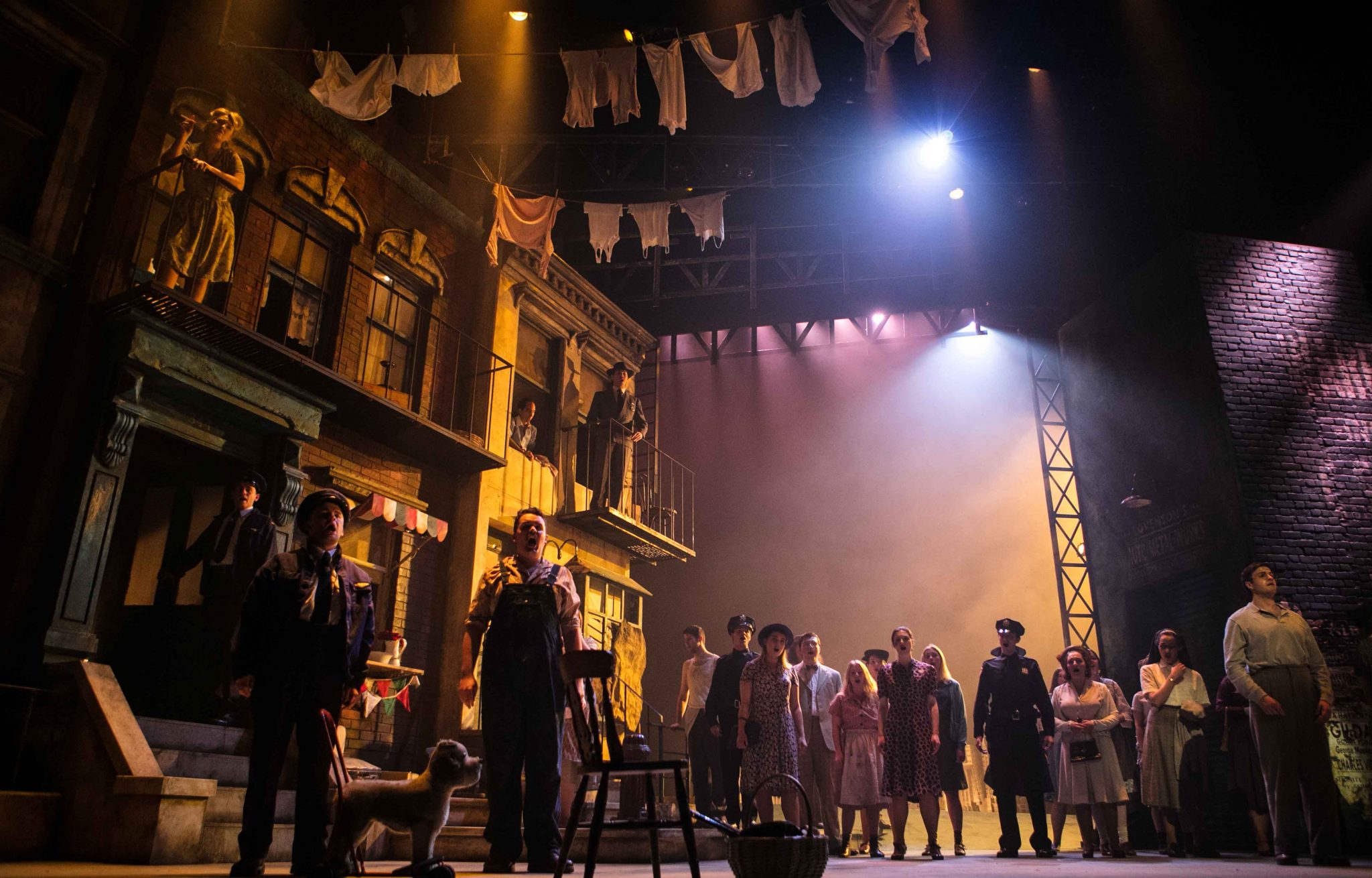In their production of Kurt Weill’s opera Street Scene, the Royal Conservatoire of Scotland takes its audience back to 1947 to meet the multicultural residents living together in a dilapidated New York City tenement. Street gossip and sweltering heat leads (eventually) to some devastating events, shaking the foundations of this seemingly tight-knit community.
It is evident by the end of the performance why Street Scene was chosen by RCS; as the performers gradually appear to take a bow, only then do you realise the sheer number of cast members involved within this production. It is understandably attractive to an institution that wishes to give a platform to many of its students – and that it certainly does. The vocal abilities demanded of the singers also signifies a remarkable achievement for the collective ensemble, many of the leading players proving their worth. There are some great characterisations which stand out from the ensemble. Carolyn Holt’s unsympathetic and shady Mrs Jones, frequently seen watching the street from above, is as oppressive as the city heatwave. Then there are the Fiorentinos: Seumas Begg’s pocket-sized Italian stallion, Lippo, steals the show as soon as he walks onstage, prompting a surreal Ice Cream Sextet which accentuates the summer heat-induced delirium. His German wife Greta (Rose Stachniewska) is equally enjoyable to watch. A special mention should also go to Musical Theatre students Mia Michaud and Samuel Stevenson, whose dance number offers a welcome change of pace.
However, all of these elements do not equate to Street Scene being a riveting opera. There are no songs that stay with you once the curtain has fallen. There is one number that has the potential to be memorable – Ain’t It Awful – yet the performers’ enunciation, hindered by the accents many of the cast are required to assume, means very little of what is sung is understood. What is worse, the opera’s structure is incredibly uneven: nothing happens in Act I – only speculation about a suspected affair. Yet in the second half, a series of tragic events come in quick succession, involving only a few of the cast. Consequently, many of the intriguing characters introduced in the first half are left forgotten as the focus is put solely on the Maurrants.
The opera’s age also shows in scenes that are distasteful today. Colin Murray’s Weinstein-type Harry Easter is uncomfortable to watch, especially given how jovial his song Wouldn’t You Like to Be on Broadway? Is. It may have some attendees questioning calling whether a production featuring such a character should be performed during today’s sexual-political climate – particularly when the cast includes young children.
Street Scene’s ultimate flaw is its lack of likeable leading characters. Even the love story between Rose Maurrant (Rebecca Godley) and Sam Kaplan (Thomas Kinch) is difficult to engage with, with Sam coming across as too involved in his own trite suffering to truly connect with Rose following a tragic event. This is not the fault of the performers, but rather the limited character development afforded them by lyricist Langston Hughes. We therefore do not have an emotional connection to the show as with West Side Story, which Street Scene is frequently compared to.
Street Scene will be engaging enough to the family and friends who are there to see those onstage exhibit their singing and acting skills. Those without that connection, however, may struggle to stay seated the whole way through.
